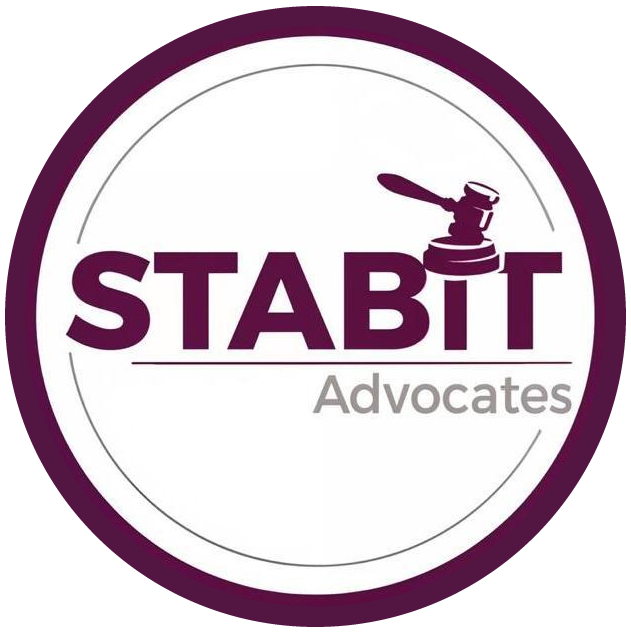The Remote Work Revolution: Navigating the Legal Landscape of the New Corporate Reality. A stabit…

Investing in Rwanda’s ICT Infrastructure Sector: A Legal Perspective
September 17, 2024 9:59 am
Stabit Advocates is pleased to present this comprehensive legal analysis on the investment opportunities within Rwanda’s ICT infrastructure sector. This guide aims to provide potential investors with a detailed understanding of the legal framework, regulatory environment, and the myriad opportunities available in this dynamic sector.
Legal Framework
The ICT infrastructure sector in Rwanda is governed by a robust legal and regulatory framework designed to promote sustainable development and attract foreign investment. Key legislation includes the Investment Code (Law No. 006/2021 of 5 February 2021) and the ICT Law (Law No. 24/2016 of 18/06/2016). These laws provide a clear and transparent process for obtaining licenses, ensuring compliance with national standards, and offering various incentives to investors1.
Licensing and Permits
Investors seeking to engage in ICT infrastructure projects in Rwanda must obtain the necessary licenses and permits. The Rwanda Utilities Regulatory Authority (RURA) is the primary regulatory authority responsible for issuing these licenses. The types of licenses available include:
- Network Facility License: Required for the establishment and operation of ICT infrastructure such as data centers, fiber optic networks, and telecommunication towers. This license ensures compliance with national ICT standards.
- Service Provider License: Necessary for companies providing ICT services, including internet service providers (ISPs) and telecommunication operators. This license is issued based on adherence to service quality and consumer protection regulations.
- Content Provider License: Required for businesses offering digital content services, such as streaming platforms and online media. This license ensures compliance with content regulations and intellectual property laws.
Environmental Compliance
Investors are required to conduct Environmental Impact Assessments (EIAs) and obtain Environmental Impact Assessment Certificates before commencing any ICT infrastructure projects. The Rwanda Environment Management Authority (REMA) oversees this process to ensure that ICT activities do not adversely affect the environment2.
Investment Incentives
Rwanda offers a range of fiscal and non-fiscal incentives to attract investment in the ICT infrastructure sector. These incentives include:
- Fiscal Incentives:
- Accelerated depreciation of assets at 50% for the first year.
- Exemption from import duties on ICT equipment and materials.
- Value-added tax (VAT) refund on ICT-related equipment.
- Capital gains tax exemption.
- Preferential corporate income tax rate for specific ICT projects.
- Non-Fiscal Incentives:
- Facilitation with obtaining visas and work permits.
- Provision of notary services by the Rwanda Development Board’s (RDB) One Stop Center.
- Assignment of a Key Account Manager to assist with project registration and implementation.
Investment Opportunities
The ICT infrastructure sector in Rwanda presents numerous investment opportunities across various sub-sectors. Key opportunities include:
- Broadband Infrastructure: Investment in the development and expansion of broadband networks, including fiber optic and wireless technologies. Rwanda aims to achieve universal broadband access to support its digital economy.
- Data Centers: Establishment of data centers to provide secure and reliable data storage and processing services. This includes the development of Tier III and Tier IV data centers to meet international standards.
- Smart Cities: Development of smart city projects that leverage ICT to enhance urban living. This includes the implementation of smart grids, intelligent transportation systems, and digital public services.
- E-Government Solutions: Investment in e-government platforms to improve the efficiency and transparency of public services. This includes the development of digital identity systems, online service portals, and electronic payment systems.
- ICT Innovation Hubs: Establishment of innovation hubs and tech parks to foster entrepreneurship and innovation in the ICT sector. These hubs provide infrastructure, mentorship, and funding support to startups and tech companies.
Conclusion
Rwanda’s ICT infrastructure sector is poised for significant growth, driven by a supportive legal framework, attractive investment incentives, and a commitment to digital transformation. Stabit Advocates is dedicated to providing comprehensive legal support to investors seeking to capitalize on these opportunities.
If you love our article on “Investing in Rwanda’s ICT Infrastructure Sector: A Legal Perspective,” check back here for more legal news
Contact Information
Stabit Advocates
Website: www.stabitadvocates.com
Email: info@stabitadvocates.com
Phone: +250 789 366 274
For more information or to discuss your case, please contact us at www.stabitadvocates.com.
This guide is intended to provide general information and does not constitute legal advice. For specific legal advice tailored to your situation, please consult with a qualified attorney at Stabit Advocates.
1: Investment Code, Law No. 006/2021 of 5 February 2021. 2: ICT Law, Law No. 24/2016 of 18/06/2016.




This Post Has 0 Comments